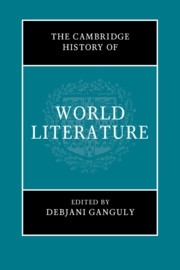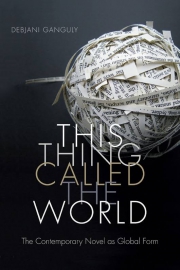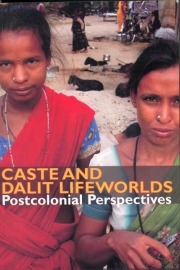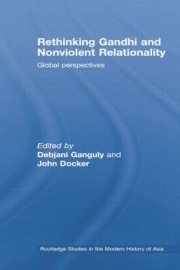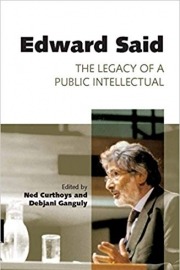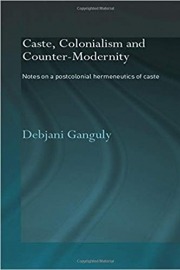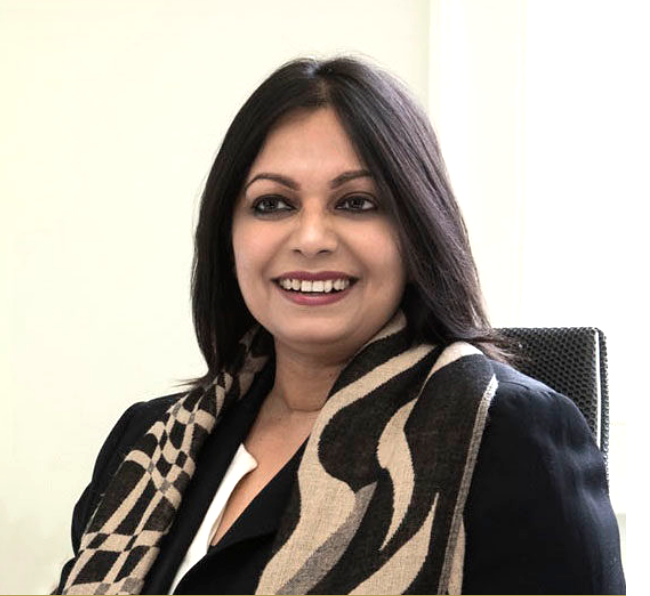
Debjani Ganguly
Professor
Bryan Hall 106
Office Hours: Tue-Thu 2:00-3:00pm or by appointment
Class Schedule: Tue-Thu: 3:30-4.45pm; Wed: 3:30-6:00pm
Specialties
Modern and contemporary literatures in English; world literature; history and theory of the novel; postcolonial studies; literature and human rights; literature and technology; planetary humanities
Research
I specialize in post-1945 English and global anglophone literatures. My research is informed by postcolonial and world literary theories, new formalisms, new materialism, media ecologies, philosophies of technology and digitality, human rights discourse, and environmental concerns.
My latest publication is a two-volume The Cambridge History of World Literature (2021). I am series editor (with Francesca Orsini) of the Cambridge book series Cambridge Studies in World Literature.
My monograph, This Thing Called the World: The Contemporary Novel as Global Form (2016) traces the interlaced histories of globalism, information technology, ethnic violence, and humanitarian connectivity as these have shaped the contemporary anglophone novel. I am currently completing a monograph entitled Catastrophic Modes and Planetary Realism. Literary and cinematic works on four iconic contemporary scenarios of catastrophe feature in this study: drone warfare, viral pandemics, nuclear accidents, and climate change. I explore the changing aesthetics of realism in a planetary realm and the ontological upending of the realist novel’s humanist ground by mega-scale nonhuman forces.
My first monograph, Caste, Colonialism, and Counter-Modernity (2005), is an intellectual history and a revisionist ethnography of caste and untouchability in India from the point of view of theoretical developments in the field of postcolonial studies. Spanning a period from the eighteenth century to the present, the book traces the discursive horizons of caste from early colonial histories and anthropological tracts to contemporary dalit literature and postcolonial historiographical projects such as Subaltern Studies.
As director of humanities institutes in two countries over a decade and a half, I have extensive experience in fostering international projects and networks in the fields of environmental humanities, digital humanities, human rights and refugee migration, and global south studies. From 2017-2021, I led a Lab, Humanities Informatics, with an interdisciplinary team of computer scientists, data scientists, media scholars, sociologists, philosophers, literary theorists, legal scholars, ethicists, and historians of science and technology. The Lab explored epistemological and ethical questions about contemporary infrastructures of information - social media, big data, algorithms, AI - that shape knowledge and values in society.
I have held visiting fellowships at the University of Chicago, University of Cambridge, University of Oxford, and University of Wisconsin-Madison. I am a Fellow and Life Member of Clare Hall, Cambridge, Fellow of the Royal Asiatic Society of Great Britain and Ireland, and advisory board member of the Harvard Institute for World Literature, the Academy of Global Humanities and Critical Theory (Bologna), and the Long Room Hub, Trinity College, Dublin.
Books
The Cambridge History of World Literature, 2 volumes, Editor, Cambridge University Press, 2021
This Thing Called the World: The Contemporary Novel as Global Form, Durham and London: Duke University Press, 2016
Caste and Dalit Lifeworlds: Postcolonial Perspectives, New Delhi: Orient Longman, 2008
Rethinking Gandhi and Nonviolent Relationality: Global Perspectives, ed. London and New York, Routledge, 2007
Edward Said: The Legacy of a Public Intellectual, ed. Melbourne University Press, 2007
Caste, Colonialism and Counter-Modernity: Notes on a Postcolonial Hermeneutics of Caste, London and New York: Routledge, 2005
Journal Articles and Book Chapters (select)
-
2024, “Drone Form and Techno-Futurities,” New Literary History, Spring issue, in press
-
2024, “World Literature and Cosmopolitanism,” Oxford Handbook on Cosmopolitanisms, eds. Lisa Wedeen et.al, Oxford University Press, in press
-
2024, “Formal and Planetary Realism: Scales Models, Technology, Ecology,” The Oxford Handbook on Global Realisms. Ed. Katherine Bowers and Margarita Vaysman, Oxford University Press, in press.
-
2023, “Decolonizing World Literature,” Decolonizing the English Literary Curriculum, ed. Ato Quayson and Ankhi Mukherjee, Cambridge University Press.
-
2023, “Angloglobalism, Multilingualism, and World Literature”, Interventions: International Journal of Postcolonial Studies, vol.25, no.5, pp 601-618.
-
2023, “War and Drones,” War and Literary Studies, eds. Anders Engberg-Peterson and Neil Ramsay, Cambridge University Press, pp 261-277
-
2022, “The Scale of Realism in the Global Novel,” Global Literary Studies: Key Concepts, eds Diana Riog Sanchez and Neus Rotger, Berlin: De Gruyter, pp137-160
-
2022, “The Speculative Turn in Feminist World Literature,” Feminism and World Literature, ed. Robin Goodman, London: Bloomsbury, pp 56.70
-
2021, “Oceanic Comparativism and World Literature,” The Cambridge History of World Literature, Cambridge University Press, pp 429-457
-
2020, “Catastrophic Form and Planetary Realism,” New Literary History, Vol.51, No.2, pp 419-453
-
2020, “The Global Novel: Comparative Perspectives,” New Literary History, Vol.51, No.2. pp v-xviii
-
2020, “Salman Rushdie and the World Picture of Islam”, The Wiley-Blackwell Companion to World Literature, Oxford: Blackwell. Volume 5: eds. B. Venkat Mani and Ken Seigneurie, pp 1-11
-
2019, “Opium and Indian Ocean Worlds: The Scale of the Historical Novel in Amitav Ghosh’s Ibis Trilogy”, MLA Volume on Amitav Ghosh, ed. Gaurav Desai and John Stratton, Modern Languages Association, pp 26-37
-
2017, “Humanitarian Scripts in the World Novel”, Worldmaking: Literature, Language, Culture, ed. Philippa Kelly, Philadelphia: John Benjamins.
-
2015, “The Value of Worldmaking in Global Literary Studies”, The Values of Literary Studies, ed. Ronan McDonald, Cambridge University Press, pp 204-219
-
2015, “Postcolonialism’s Afterlife: The Novel after 1989”, The Cambridge Companion to the Postcolonial Novel, ed. Ato Quayson, Cambridge University Press, pp 35-59.
-
2015, “Polysystems Redux: The Unfinished Business of World Literature,” Cambridge Journal of Postcolonial Literary Inquiry, Vol.2, No.2, pp 272-281
-
2014, “The World Novel, Mediated Wars, and Exorbitant Witnessing,” Cambridge Journal of Postcolonial Literary Inquiry, 1:1, pp11-31
-
2014, “New Topographies of the Postcolonial’, with Ato Quayson and Neil Ten Kortenaar, Cambridge Journal of Postcolonial Literary Inquiry, 1:1, pp 1-10
-
2012, ‘Dalit Life-Stories’, The Cambridge Companion to Modern Indian Culture, ed. Vasudha Dalmia, Cambridge University Press, pp 142-162
-
2012, “The Language Question in India”, The Cambridge History of Postcolonial Literature, ed. Ato Quayson, Cambridge University Press, pp 649-702
-
2011, ‘Deathworlds, The World Novel and the Human’, Angelaki, Vol. 16, No. 4, pp 145-158
-
2010' ‘Postcolonial Poetry in English,’ Modern Philology, Vol. 107, No. 3, pp E75-E78
-
2009' ‘Pain, Personhood, and the Collective: Dalit Lifestories’, Asian Studies Review, Vol. 43, No. 4 pp 429-442
-
2008' ‘Literary Globalism in the New Millennium’, Postcolonial Studies, Vol. 11, No. 1, pp 119-133
-
2008' ‘Tryst with Postcolonial Destiny’, Economic and Political Weekly, Vo. 43, No.7, 16 February, pp 35-38.
-
2008' ‘Global Literary Refractions: Reading Pascale Casanova’s The World Republic of Letters’, English Academy Review, Vol. 25, No. 1 June, pp 249-264
-
2007, “100 Days in Rwanda: Trauma Aesthetics and Humanist Ethics in an Age of Terror”, Humanities Research, Vol. 15, No.2, pp 49-65
-
2007, “From Empire to Empire: Writing the Transnational Anglo-Indian Self in Australia”, Journal of Intercultural Studies, Vol. 28, No 1, pp 27-40
-
2004, “Buddha, Bhakti and Superstition: A Post-Secular Reading of Dalit Conversion”, Postcolonial Studies, April 2004, Vol. 7, No.1, pp 49-62

